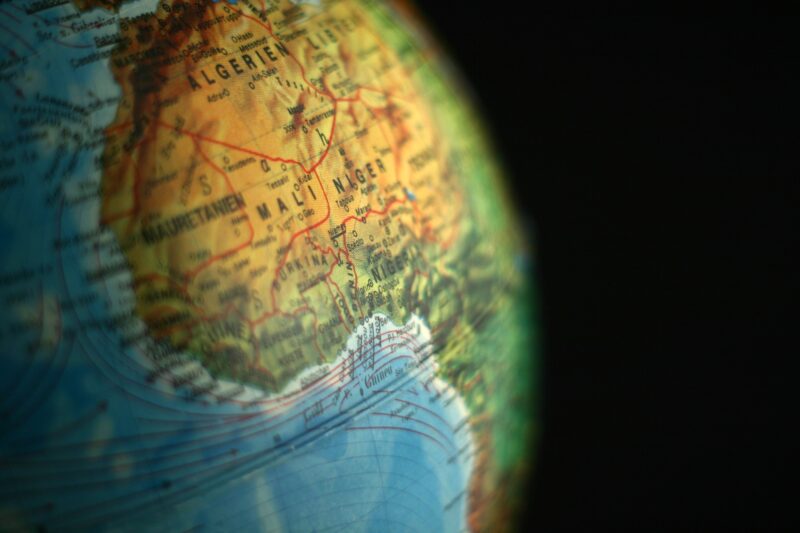Since February 2019, protests have continued in Algeria led by the HIrak movement. The movement was born on 22 February 2019, protesting against the candidacy of Abdelaziz Bouteflika, in particular against the possibility that the president could run for his fifth term. These protests were helpful, as they led to Bouteflika’s resignation. However, his resignation did not put an end to the controversy. Indeed, the people continued to protest, demanding a radical revolution in the system; they wanted to move from the military system to the civil system. These protests acquired a weekly cadence over time. However, the advent of the pandemic prevented the possibility of marching every Friday. In 2021, an attempt was made to resume marches, but these were suppressed in the capital, Algiers, and other cities of the country. New rules have also been imposed: all such events must be declared in advance. The declaration must specify the route, start and end times, and the identity of the organizers. This type of communication is by no means unusual, yet it has become a pretext for the government to deny permission to the demonstrators. Measures were then taken to repress or at least minimize dissent. Dozens and dozens of people were arrested, including journalists, human rights defenders, whistleblowers, trade unionists, and online activists. In September 2023, Amnesty International launched a campaign calling for the release of these detainees. Among the detainees, we can identify Slimane Bouhafs. On the 4th of July 2023, the Court of Appeals in Algeria sentenced Slimane Bouhafs to three years in prison and to pay a fine of approximately USD 734. The charges against him are for terrorism; the government suspected him of being affiliated with an independent organization in Kabylia. As a result of these suspicions, Bouhafs was abducted from his home in Tunis, where he had been granted refugee status, and was later imprisoned in a prison in Kolea. Amnesty International states that “Not only are the charges against Slimane Bouhafs bogus, but his entire trial is illegal under international human rights law.” The organization also demands that he be released and that the charges against him be dropped. Another individual arrested is Mohamed Tadjadit, also known as ‘The Poet of Hirak’. He had already been imprisoned in 2019 and 2022 for participating in peaceful protests. On 24 2022 October, he was arrested outside his home in Reghaïa, in the wilaya of Algiers, following a Facebook live, starting a hunger strike to protest ‘kidnapping and the attack on freedom of expression’. This was the fourth preventive detention of the young activist.
In general, the National Committee for the Liberation of Prisoners estimates that there are more than 300 prisoners of conscience in Algeria today. Some remain in custody for many months, awaiting trial. Furthermore, the Socialist Workers’ Party (PST) has been suppressed and other parties such as the Union for Change and Progress (UCP) and the Rassemblement for Culture and Democracy (RCD) are threatened with the same fate. These are three political parties that play an active role in the Hirak. Consequently, Amnesty International believes that ‘the Algerian authorities want to stay in power at all costs and are trying to crush their opponents by trampling on their rights to freedom of assembly, association and expression’.According to some observers, the increased repression is changing the nature of the regime, which is now adopting a systematic repression of the Hirak. This move may stem from the regime’s awareness that the movement’s demands remain alive within Algerian society. On the other hand, the President of Algeria has issued pardon or clemency decrees for thousands of prisoners and detainees awaiting trial, including some 160 Hirak activists in February 2021 and April 2022, as reported by the media. In addition, according to the National Committee for the Release of Prisoners, 107 more Hirak members have been released since January 2023.
The situation in Algeria reflects a complex dynamic between the government and the Hirak movement, characterized by persistent protests and increasing repression by the authorities. The resignation of Abdelaziz Bouteflika in 2019 was a significant moment but did not lead to a complete regime change as demanded by the movement. The arrest and detention of activists such as Slimane Bouhafs and Mohamed Tadjadit, along with the suppression of political parties active in the Hirak, highlight a growing violation of human rights and a threat to democracy. However, the issuing of pardon or clemency decrees in favor of prisoners, including members of the Hirak, indicates a kind of government response to national and international pressure. Ultimately, the situation in Algeria remains tense and uncertain, with the regime trying to maintain control while the Hirak movement continues to fight for change.
- Rohingya’s Fate - March 20, 2024
- War Crimes and the Myanmar Conflict - March 20, 2024
- Pegasus Spyware Against Journalists in India - March 20, 2024


